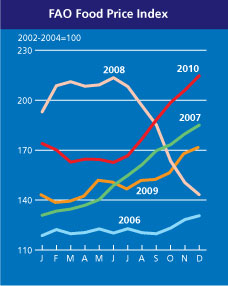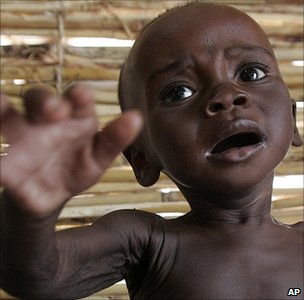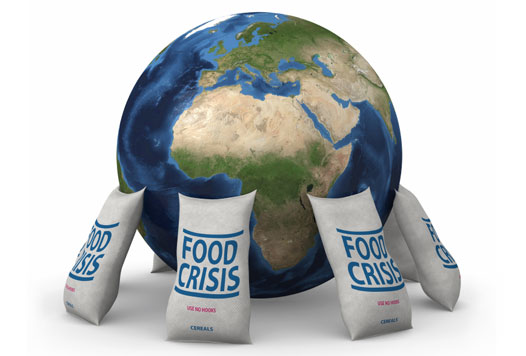Famine
Submitted by ward on
Food Prices Continue to Rise, Worsening the Food Crisis
Submitted by ward on
World On The Edge: Quick Facts
Submitted by wrscpmd on
Cost Of Natural Disasters $109 Billion In 2010 -- U.N.
Submitted by wrscpmd on
Hunger Index Shows One Billion Without Enough Food
Submitted by wrscpmd on
22 Countries Face Food Crisis: UN Agencies
Submitted by wrscpmd on
Food crisis caused by biofuels?
Submitted by wrscpmd on
UN Fights To Save The Planet From Ever-Expanding Deserts
Submitted by glenshewchuck on
Rust In The Bread Basket
Submitted by glenshewchuck on
UN Says Poor Nations On Track To Cut Poverty
Submitted by glenshewchuck on







 FORTALEZA, Brazil, Aug 16, 2010 (AFP) - The United Nations Monday launched a campaign to save the planet from deserts that are threatening a third of the planet along with the livelihoods of more than a billion people.
FORTALEZA, Brazil, Aug 16, 2010 (AFP) - The United Nations Monday launched a campaign to save the planet from deserts that are threatening a third of the planet along with the livelihoods of more than a billion people.